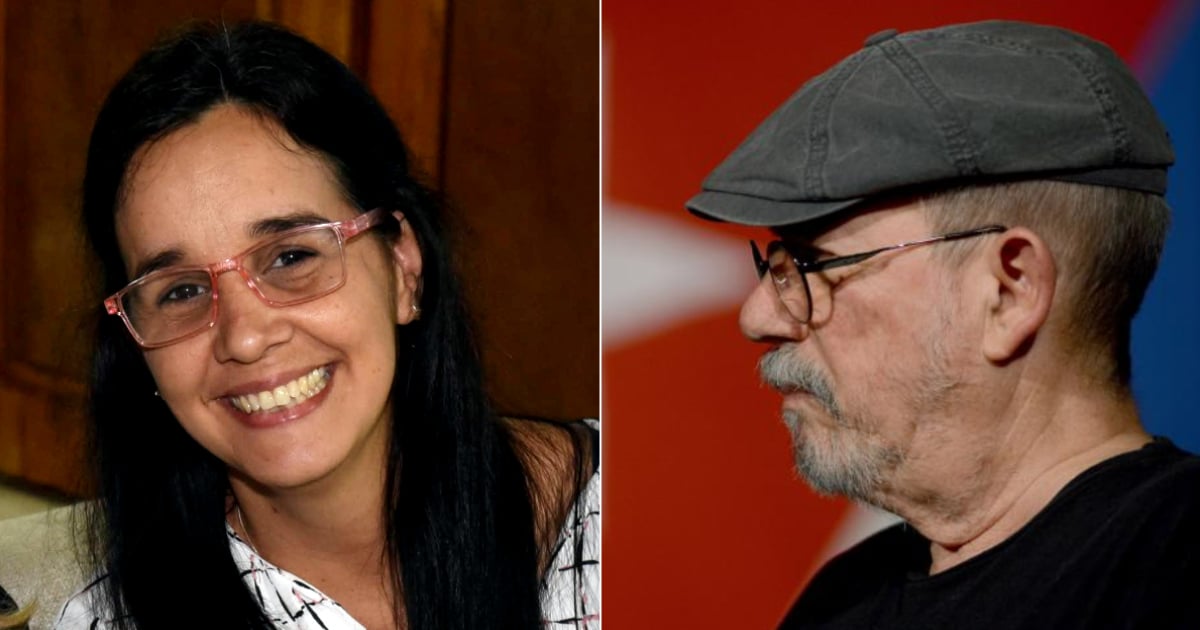The recent Havana Festival in Cuba has sparked unexpected controversy fueled by singer-songwriter Silvio Rodríguez, who has voiced his disapproval over what he perceives as a "gradual erosion of national dignity." In a piece titled "Another Perhaps," published on March 2, 2025, Rodríguez articulated his concerns about the current trajectory of both the Cuban government and society, lamenting the loss of "national dignity."
The artist, known for his historical alignment with the revolutionary project, stated, "Various signals suggest a kind of gradual disappearance of the sense of national dignity," expressing sorrow over what he described as the country's "regression." He highlighted examples such as the trivialization of historical memory and the disrespect towards traditional Cuban values symbolized by landmarks like the Capitol, the Republic's statue, and the Tomb of the Unknown Mambí.
Rodríguez's words have ignited strong reactions on social media and within official circles.
Leticia Martínez's Defense of the Government and the Havana Festival
Leticia Martínez Hernández, head of communications for Cuban leader Miguel Díaz-Canel, responded by defending the "national dignity" that she believed Rodríguez had called into question. She justified the presence of millionaires at the Havana Festival with rhetoric typical of regime propaganda.
Martínez Hernández emphasized achievements such as supposed innovative medicines, the nation's response to the COVID-19 pandemic, the dedication of Cuban athletes, and medical assistance in rural areas. Her response, shared with friends on Facebook, included a quotation from one of Rodríguez's songs, "El Necio," to bolster her argument: "If today we are as we are, with a noose around our necks yet still breathing, it's because one day we believed in 'the obstinacy of assuming the enemy, the obstinacy of living without a price.'"
Disillusioned Revolutionaries React
The post from Martínez also provoked reactions from Cubans who have traditionally supported the "revolution" but are increasingly disillusioned with Díaz-Canel's "continuity" government. One such voice is Manuel David Orrio del Rosario, a former State Security agent and journalist. He published a detailed rebuttal on Kaosenlared, dissecting and questioning Martínez's arguments.
Orrio highlighted, for instance, the rising infant mortality rate in Cuba, which contradicts the official narrative of a successful healthcare model. His comprehensive analysis also critiqued the lack of transparency in crime statistics, the shortage of essential medicines on the island, and the educational system crisis.
On the other side of this tension between "disenchanted sectors" and staunch government supporters are figures like Francisco Rodríguez Cruz, known as "Paquito de Cuba." He has previously openly criticized Silvio Rodríguez, calling the artist's recent songs "obsolete, both musically and poetically."
The Havana Festival Amidst Economic Crisis
The Havana Festival, held annually in the Cuban capital, is a significant event for the premium tobacco industry, drawing entrepreneurs and celebrities worldwide. However, the presence of wealthy foreigners amidst an unprecedented economic crisis has caused discomfort among those who see a contradiction in promoting luxury while Cuban citizens struggle to obtain basic necessities.
Marino Murillo Jorge, former head of Cuba's economic reform and current president of Tabacuba, has also faced criticism for participating in the event. Once seen as the architect of the failed "monetary ordering," his role in the tobacco company appears as a mockery to the population enduring economic hardships.
The Call for National Dignity and Change
Silvio Rodríguez's remarks reflect the disillusionment of a segment of the Cuban intellectual community, which once supported the "revolutionary process" but now watches the country's direction with concern.
This debate within official circles about the loss or gain of "national dignity" evokes the notion of "playing with the chain, but not touching the monkey." The Cuban regime's imposition of a one-party military dictatorship has dismantled democracy, civil society, the economy, and the nation's wealth.
Moreover, it has divided Cubans, forcing many into exile or submission through terror, and for over 60 years, it has systematically violated citizens' human rights. This regime lacks legitimacy, having sold the country's sovereignty and used terror to maintain power.
While critics see the "continuity" as a departure from the original Cuban "revolution" project, a majority of Cubans believe in a future that involves critically reassessing history and changing the regime. This shift, whether negotiated or sudden, would ideally restore the nation to its republican traditions and values, fostering prosperity and peaceful coexistence in a state governed by the rule of law.
Understanding the Controversy Surrounding the Havana Festival
Why did Silvio Rodríguez criticize the Havana Festival?
Silvio Rodríguez criticized the festival as part of a broader concern about the "gradual erosion of national dignity" in Cuba, highlighting what he sees as a departure from traditional Cuban values and the trivialization of historical memory.
What was Leticia Martínez's response to the criticism?
Leticia Martínez defended the Cuban government's stance and the inclusion of millionaires at the Havana Festival, citing achievements in healthcare, sports, and rural medical assistance as evidence of the country's preserved dignity.
How has the economic crisis affected perceptions of the Havana Festival?
The presence of wealthy foreigners at the festival amidst Cuba's severe economic difficulties has been seen as contradictory and inappropriate, leading to discomfort among those who struggle to meet basic needs.
